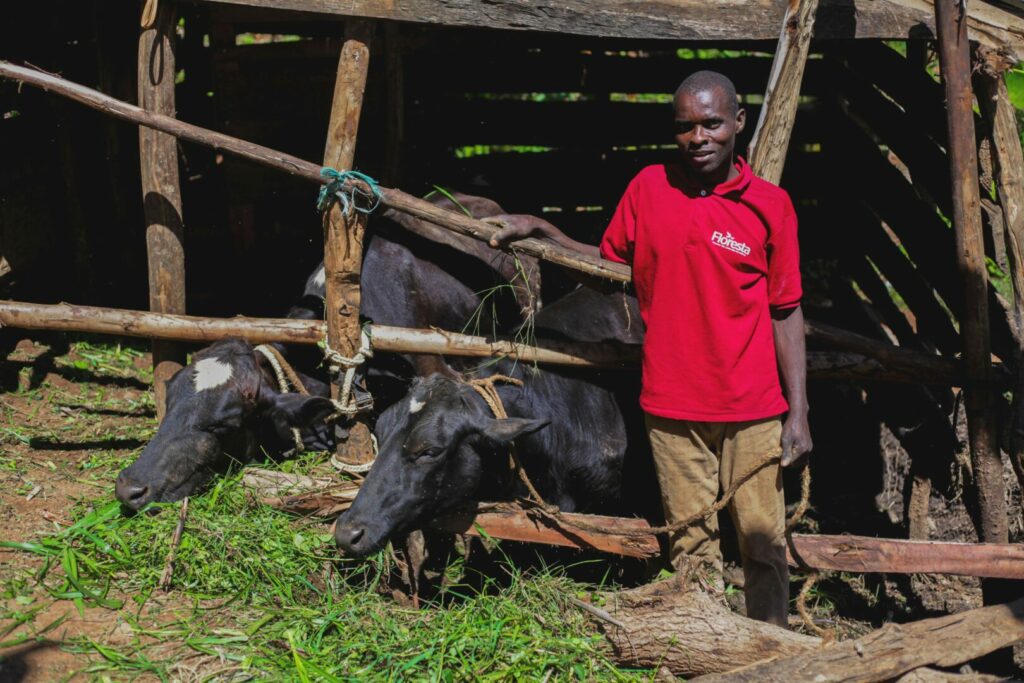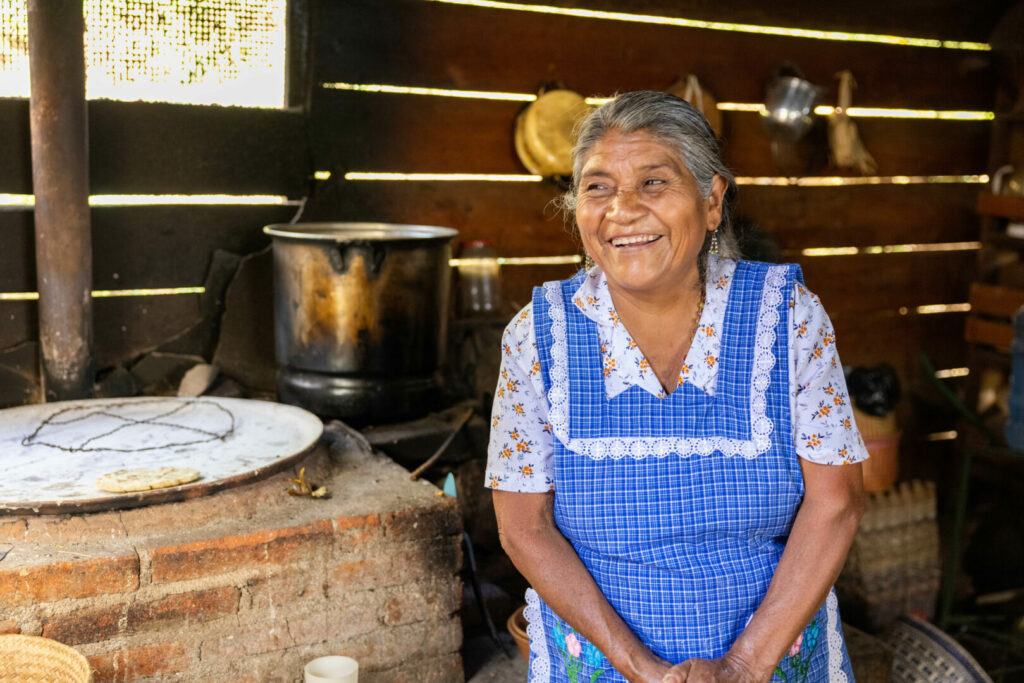“Poverty is a condition,” our Mexico Country Director reminds us. “Not a characteristic.”
For Luis, these words are not just a theory. They are a call to action, a cause to which he dedicated his life. His team’s efforts to help communities in three of Mexico’s poorest states happen alongside workshops focused on identity and vocation. It is not enough for program participants to see their financial resources grow. Transformation is incomplete without a reinvigorated sense of one’s value and purpose.
Our work is rooted in the belief that all people have inherent value and dignity. While we work against conditions like poverty, we recognize that those are simply conditions: temporary states that do not ultimately define a person.
While the biggest challenges a person faces may give them an opportunity to develop and express their character, it is always important to remember that people are so much bigger than their problems and their lowest moments.
The world of international development and environmental problem solving is full of examples that do the opposite. In many cases, things like culture or a person’s decision-making ability are seen as obstacles to a mission, rather than the key to its success.
Plant With Purpose is firmly committed to upholding the value of every person. We do this by constantly reminding ourselves that people are our partners not our projects.
Here are a few ways to transform lives, while remembering that people are more than their problems:
Build on People’s Agency
Agency is important. It’s a sense of having some control over one’s consequences. It’s not feeling like life is happening to you, but instead feeling that you have an impact on what happens.
When working with people, it’s important to remember that it’s not about “giving” power and control to people. Instead, it’s about upholding and activating people’s inherent agency.
What that means is creating ways for people to discover, develop, and apply their gifts and interests. It means that people shouldn’t feel as though their continued success relies on outside intervention, but instead that their communities have the ability to change their circumstances. An example of this is with savings groups. Savings aren’t built by injecting outside resources but by providing platforms for people to strategically invest their own earnings.
Let Locals Lead
Plant With Purpose is deliberate about applying a locally-led model to program activities. What this means is that in every country where we work, you’ll find an independent team of partners from that country. This approach goes a step further. Village agents and facilitators serve as connectors between the nationally-based team and the remote areas where activities are conducted.
Within each Purpose Group, rotating leaders are nominated and elected, creating abundant opportunities for participants to fill leadership roles. This hyperlocal model offers an extremely practical advantage: people local to an area understand their area best. They have an innate familiarity with their land, their community, and cultural considerations.
Proximity allows people to better distinguish how their neighbors’ lives are more nuanced and deeper than the biggest challenges they face. In addition, many neighbors may experience the same challenges and are able to help one another.

Use Person-First Language Instead of Labels
The concept of person-first language seeks to uphold the identity of people by abstaining from referring to them by labels, especially labels based on challenges. For example, person-first language says, “a person who is blind” rather than “a blind person.”
This approach to language is far more than a contemporary fad or political correctness. The effort made to choose words more carefully serves as a recurring reminder that people are indeed more than their biggest problems. Popular use of person-first language has its origins in the disability advocacy community, distinguishing people apart from their diagnoses. However, this concept can be applied to anywhere where labels often flatten a person’s identity. “People without homes” can be used in place of “homeless person,” as the latter often conjures stereotypes and misconceptions. When it comes to poverty, referring to someone as a “person experiencing poverty” or somewhere as a “place with high poverty rates,” reinforces Luis’ important reminder. No person or place was created with the inherent identity of being poor.
Learn Names and Build Relationships
It sounds simple enough, but one of the most important ways to uphold a person’s dignity is to remember their name. A name represents identity and typically holds significance for its owner. In many cultures, names may tell broader stories about a person’s place of belonging. When referring to somebody by name, it lets them know that you have taken the time to truly see them as an individual. As Dale Carnegie said, “remember my name and you add to my feeling of importance.” Along with remembering names, it is also important to make a good effort to pronounce names as accurately as possible.
As an organization that works with tens of thousands of people, this could feel impossible. Through our hyperlocal partnership model, however, long-term relationships are made between our locally-led teams and participating communities, relationships in which people learn each other’s names and stories.
When it comes to our communications and storytelling, it also means a recognition that names and identities matter. We make our best effort to know the names of the majority of participants pictured in the images we use online and in print.
Don’t Omit the Problems
While people are so much bigger than their problems, it’s important to remember that this doesn’t mean to avoid talking about the problem altogether. In the past, some nonprofits sensationalized impoverished conditions for sympathy. Today, some organizations try to correct this by softening the story or leaving our challenging details. Neither of these examples are ethical storytelling.
In one-on-one conversation, our partners are often open and direct about how challenging their lives were and how difficult it can be in the places where they live. Choosing to completely ignore or leave out this part of their story can distort the authentic voice of this person.
There is a way to talk about people’s challenges and problems, including poverty, without being sensationalistic about them. Avoid writing things for the purpose of generating shock and instead focus on setting the necessary context for the bigger story you seek to tell. Use statistics in an accurate and appropriate way. It’s also important to note the context of why certain places are economically disadvantaged. Often, a combination of colonialism, environmental degradation, and exploitation are involved.

Practice Ethical Photography
Upholding the dignity of people isn’t limited to the written word. Visuals play a major role as well.
Ethical photography seeks to uphold the dignity of participants by being transparent with subjects, honoring their wishes, and being aware of when a photograph may either portray someone in an unflattering light or reinforce negative stereotypes.
We recently highlighted some key ideas for people seeking to practice ethical photography, from being sensitive to cultural differences around taking pictures to examining the intent behind each photo.
“Pay attention to the details: As the photographer, you have the ability and responsibility to take a picture that shows your subject in the best possible light. When planning out a photo, it is important to pay attention to the background and specific visuals that may be in the frame. Try your best to eliminate signs of extreme poverty. This would include destitute conditions, torn and dirty clothing, or flies buzzing around. Also, pay special attention to the expression that is on your subject's face and make sure you aren’t capturing them with an expression that shows sadness or defeat. Their expressions should be positive, uplifting, and/or dignified.”
Remember the Other Parts that Make a Story Unique
One of the best ways to remind ourselves that people are more than their most daunting problems is by paying attention to the other details that make a person real. A sense of humor, unique hobbies, or distinct personality characteristics are just some of the things that vary widely from person to person. While these details may not seem directly related to the typical things you focus on when working on poverty and the environment, they can help us remember that no two stories are identical.
Plant With Purpose’s program is designed to thrive off established relationships. Storytelling exercises and even Vision Trips are conducted in an unhurried, interpersonal way, providing the space for these aspects of a person to be noticed.
If the only stories we hear of people living in rural communities are laser-focused on poverty, we will quickly assume that poverty is the most noteworthy thing about those places. However, by noticing other passions, interests, experiences, or distinct traits that make a person unique, we can create a more human story that connects with people in a meaningful way.
Highlighting a universal concern—like ensuring that your kids will have a better life or worrying if you might be excluded from a group—can also help foster greater empathy.
—
Empathy is a necessary part of the process when it comes to relating to people beyond their biggest problems and challenges. Empathy is the attempt to relate to and understand a person through their lived experiences. Sometimes this can be aided through the act of asking yourself questions like “How would I respond in a similar situation?” or “What would I actually want?”
The thing about empathy is that it is always an incomplete process, because fully understanding someone is not possible. Without the lived experience, it is impossible to truly relate to a challenge someone else has faced. But there is still value in the attempt. Empathy is best when paired with humility.
Don’t misidentify people with their problems. Always seek to uphold the value and dignity of all people.



















I’m so grateful for education and inspiration provided me in your literature and emails. My heart is full. Thank you and God bless you!